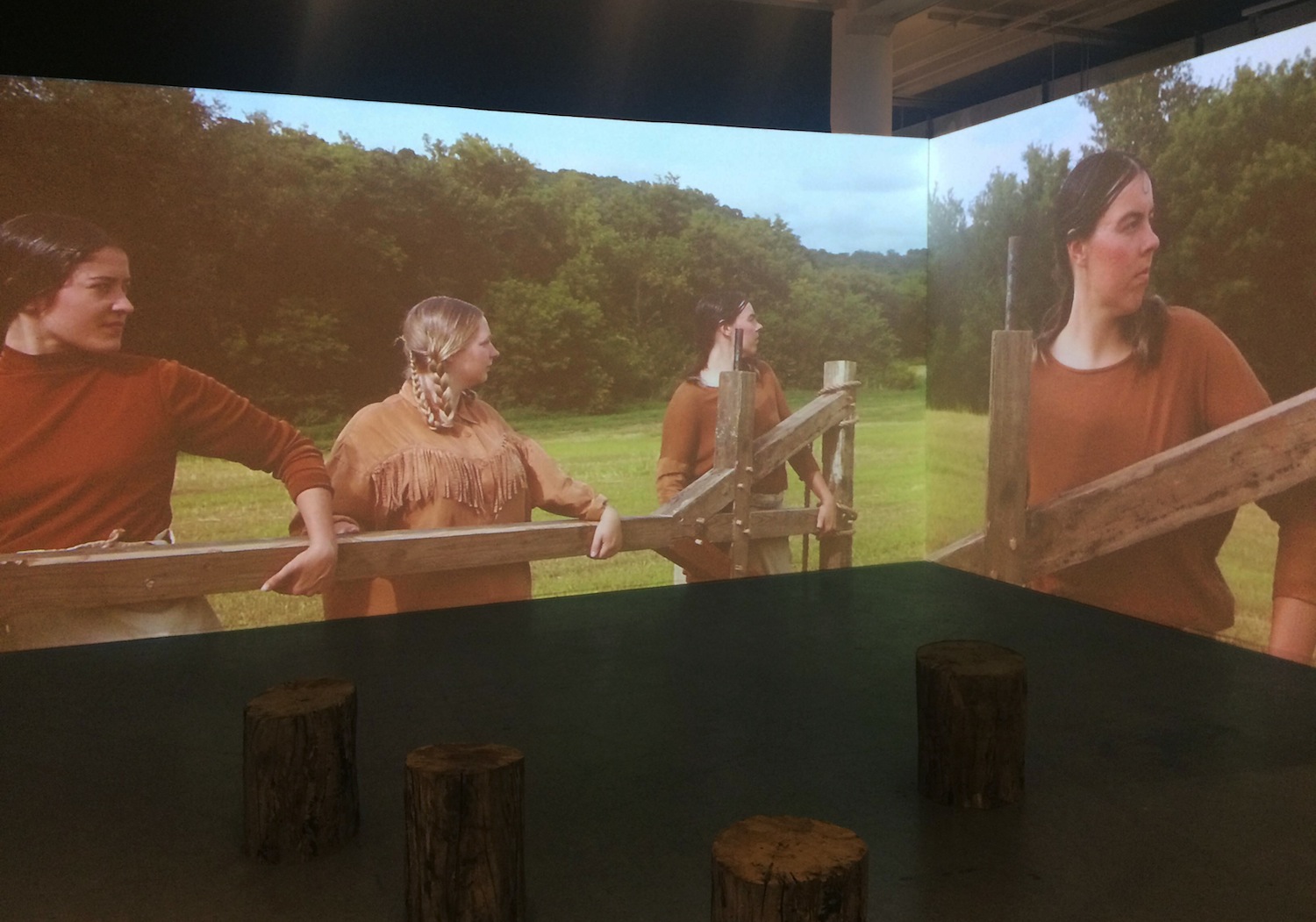



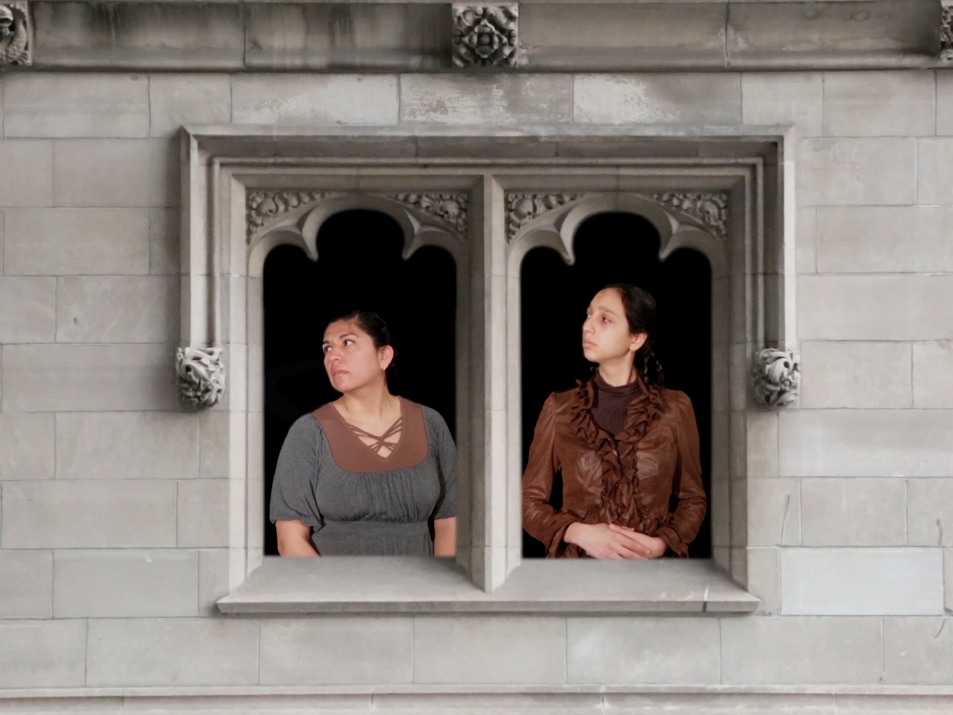
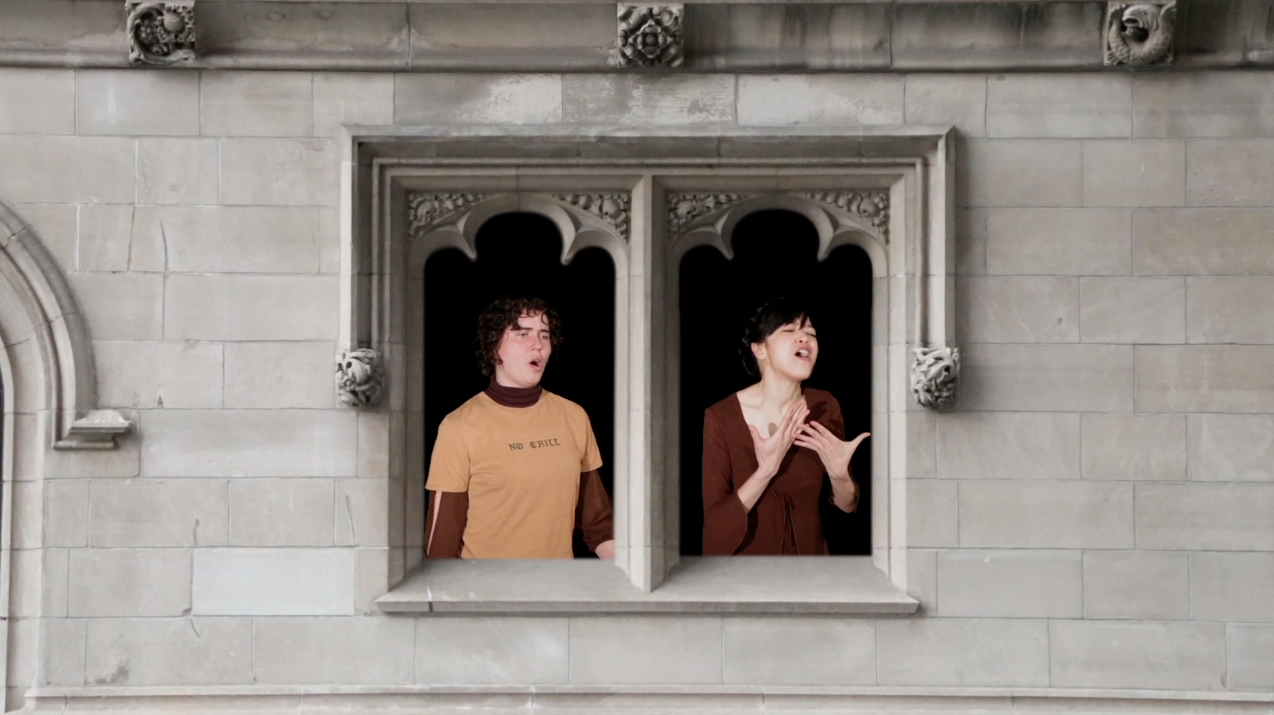

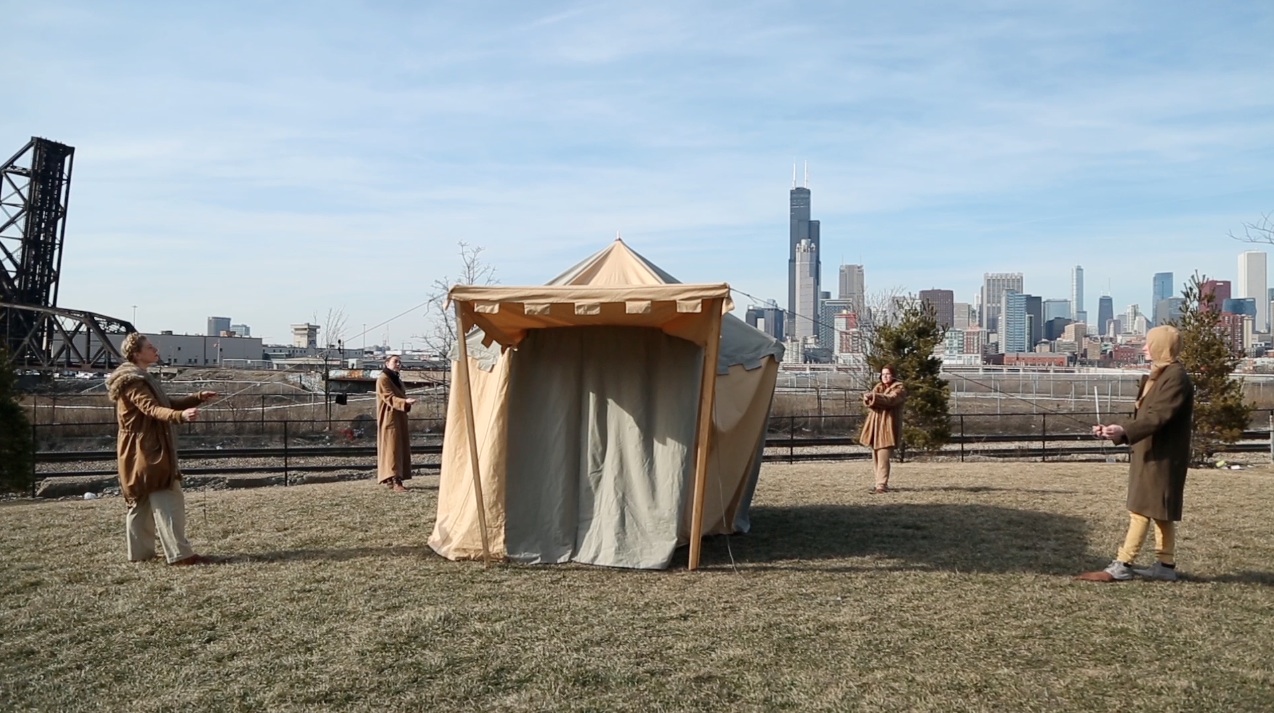
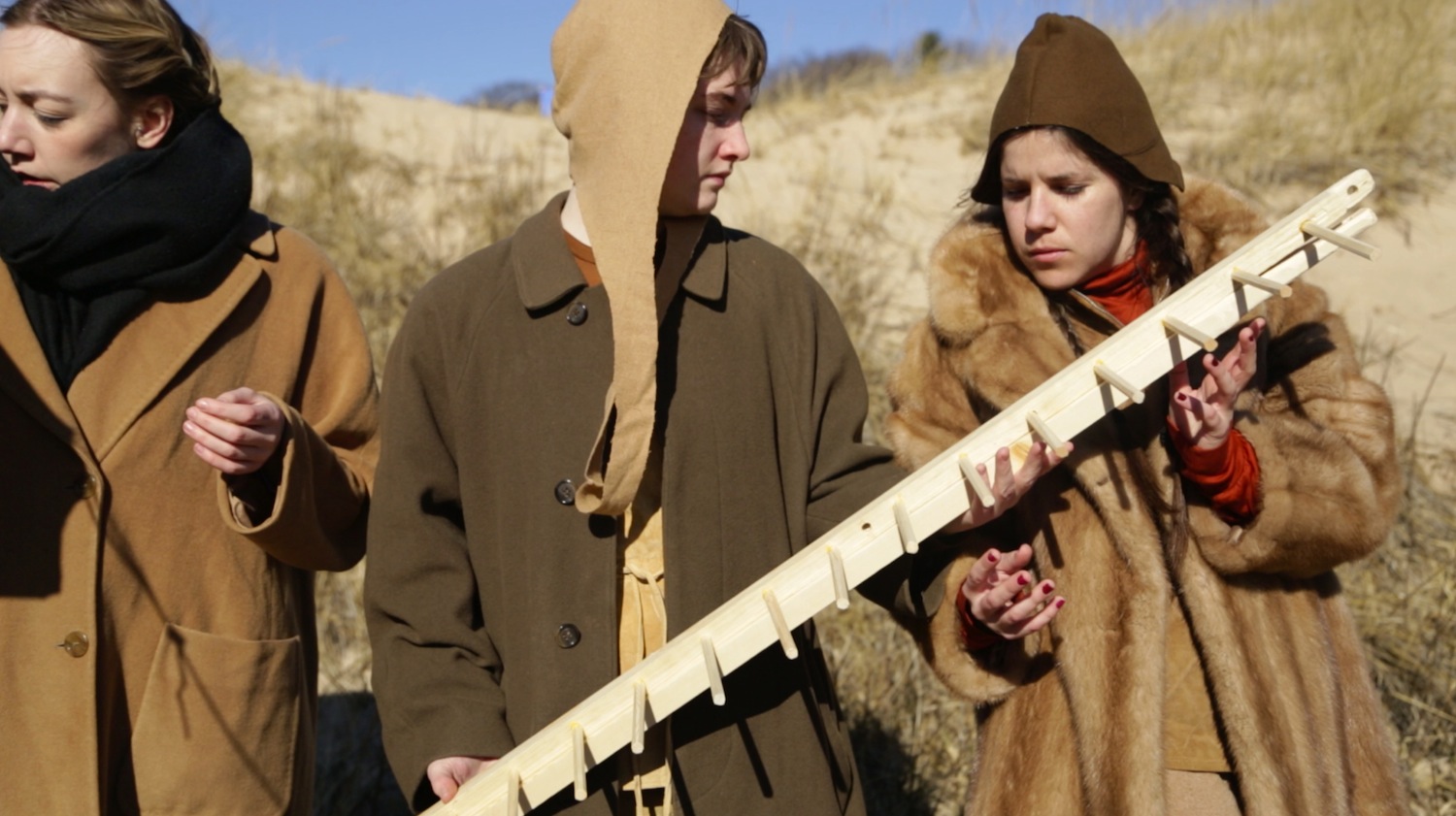
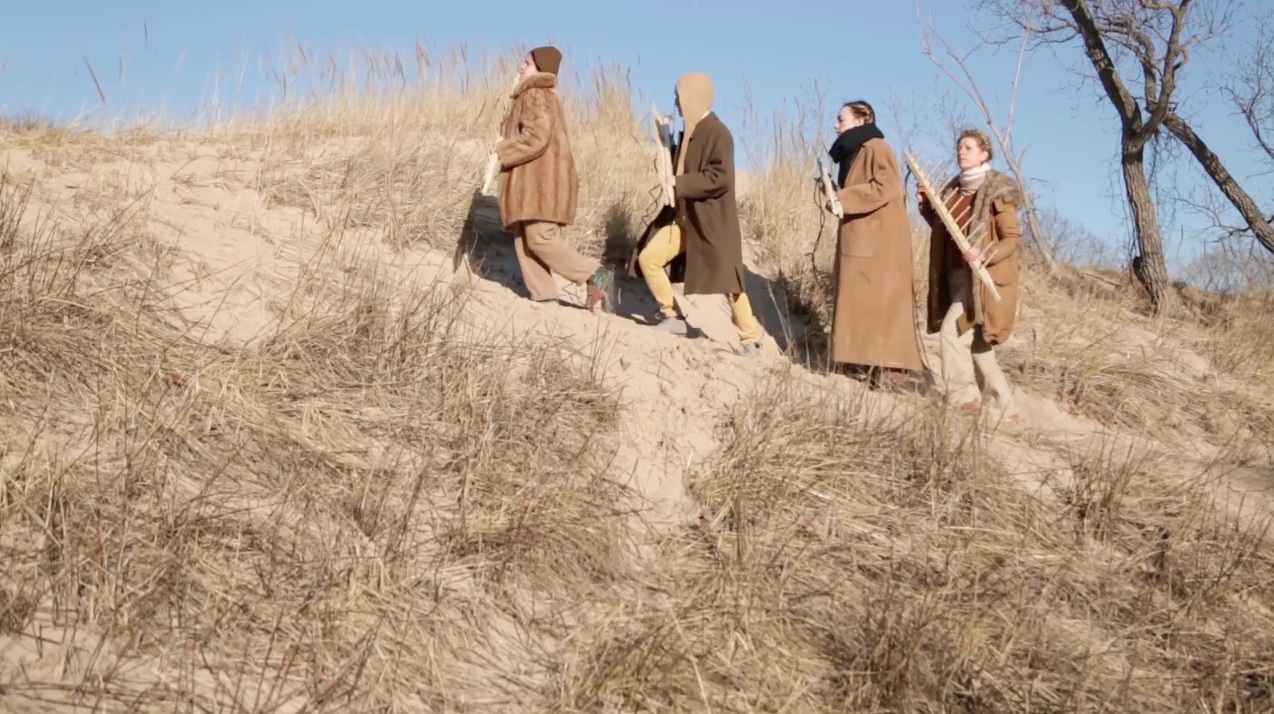
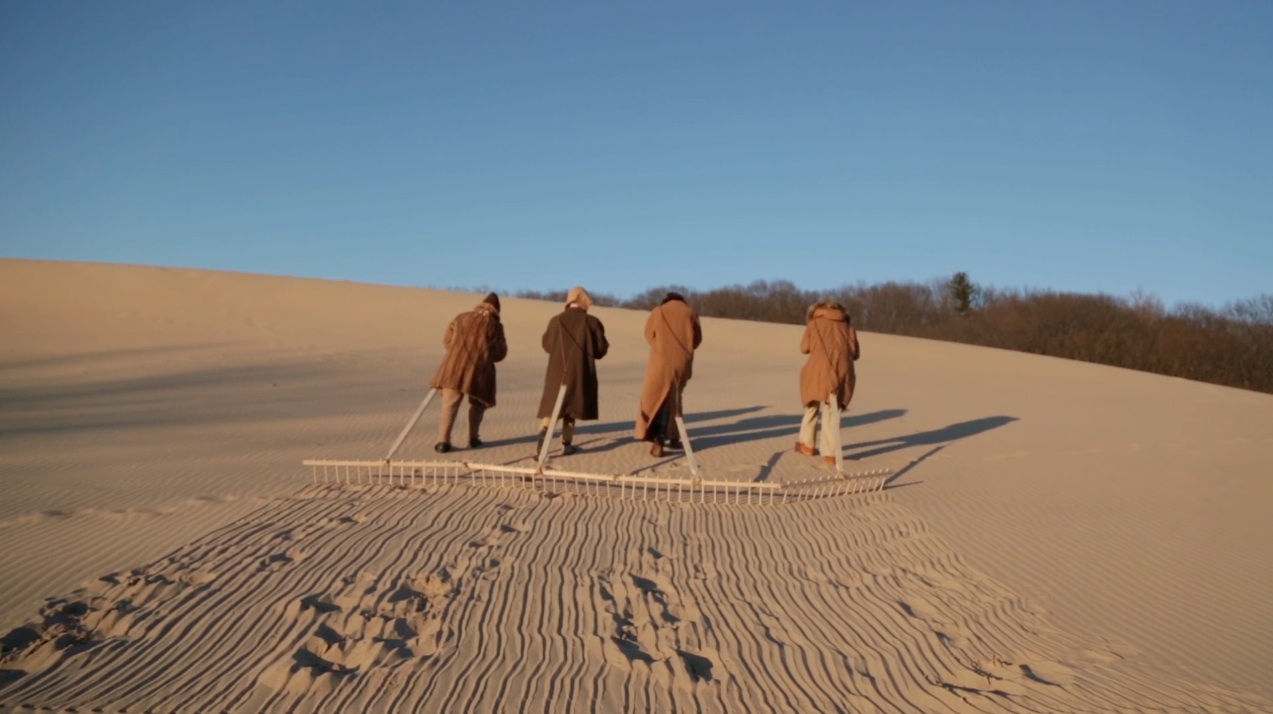
Under Siege, The Settlement, De-fen-es-tra-tion
2 channel film installation, 15min
2018
This project is a series of performative films which addresses the current political landscape by looking at the transition from feudalism to capitalism and researching its influence on structural violence in regards to both gender and race.
Questioning ideas of reenactment, historic accuracy and the complications of celebrating,
glamorizing or erasing past narratives our project aims to queer time and sail past ideas of the Old
World, the New World and propose a parallel (Other) World.
Under Siege
Wood, rope, textiles, leather, metal, cow manure
The Conscience: God asked you to do something?
Joan of Arc: Yes. Yes, lots of things.
The Conscience: You mean God said, "I need you, Jeanne."
Joan of Arc: No. But He sent me signs.
The Conscience: Signs? What signs?
Joan of Arc: The wind. The wind. And the clouds, ringing!
The Conscience: Ringing clouds?
Joan of Arc: The dance. The dance. The dance. The dance.
The Conscience: The dance.
Joan of Arc: The sword! The sword lying in the field. That was a sign.
The Conscience: No. That was a sword in a field.
Joan of Arc: No. No, that was a sign!
The Conscience: No. That was a sword. In a field.
Joan of Arc: It can't just get there by itself! It can't. A sword just doesn't get there by itself. It can't just get there by itself.
The Conscience: True. Every event has an infinite number of causes, so why pick one rather than
another? There are many ways a sword might find itself in a field.
(The Messenger: The Story of Joan of Arc,1999)
The Settlement
Wood, rope, textiles, leather, metal, sand
“We must remember that there is a great difference between a myth and a miracle. A myth is the
idealization of a fact. A miracle is the counterfeit of a fact. There is the same difference between a
myth and a miracle that there is between fiction and falsehood -- between poetry and perjury.
Miracles belong to the far past and the far future. The little line of sand, called the present, between
the seas, belongs to common sense to the natural.”
― Robert G. Ingersoll
De-fen-es-tra-tion,
Textile
/dēˌfenəˈstrāSHən/
noun
1. formal humorous
the action of throwing someone or something out of a window.
"death by defenestration has a venerable history"
2. informal
the action of dismissing someone from a position of power or authority.
"that victory resulted in Churchill's own defenestration by the war-weary British electorate"